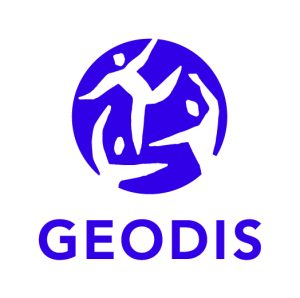Possibly the world’s largest start-up following its spin-off from IBM in November 2021, Kyndryl (NYSE: KD), is a $19 billion independent IT infrastructure services firm with operations in more than 60 countries. It designs, builds, manages, and modernises complex, mission-critical information systems supporting the digital transformation activities of 75% of the Fortune 100 companies and more than half of the Fortune 500 companies.
Procurement at Kyndryl is certainly not simply a back-office support function. In fact, procurement plays a significant role in business strategy, decisions, and outcomes. Graham Wright Kyndryl’s CPO discusses how a change in culture combined with a revamp of tools and solutions will push Kyndryl and its clients further than before.
CLICK BELOW: view the brochure version of this content
Kyndryl is noted as the world’s largest IT infrastructure provider. A truly global business. What does your role as CPO cover and how is the procurement function structured?
My responsibility as CPO covers all third party spend across the firm. I am very fortunate to have leading subject matter experts, with both deep technical and commercial expertise across Global Software, IT Hardware and Maintenance, Networking and Services, who are uniquely qualified to have a business strategy view and significantly influence in-source, out-source decisions. This talented group is known as “tower focals” and combined with category aligned strategic sourcing experts, their role is to optimise outcomes across our worldwide business (Kyndryl segregates geographies into “Time Zones”). It’s in these time zones where the category alignment shifts fully to a country agile squad designed execution model, aligned around stakeholders for both Kyndryl and our clients. Execution here includes local stakeholder liaison, local source selection, contract negotiations, order and vendor lifecycle management.
As mentioned above, the tower focals bring a business strategy view that enables the team to be decision influencers on “make or buy” decisions. They are expected to develop strategies for overall cost reduction for the firm and working with the global practices and account teams ensure these strategies support proposed go to market sales offerings and actual delivery strategy for our existing customers and to ensure Kyndryl’s costs are optimised both globally and locally.
Working in close coordination with the tower focal teams is global strategic sourcing. This team creates the global category strategy from sourcing through to delivery. They optimise leverage of Kyndryl’s 3rd party spending, through codified sourcing strategies and structured supplier selection processes, delivering competitive advantage to the firm and significant value to our customers. They manage key global supplier relationships and facilitate collaboration on common strategies between our sales and procurement teams.
Finally, we have our country teams that are established across many of our 60+ markets. Their role is to execute the category strategy working in close collaboration with internal stakeholders, delivering competitive advantage and enabling them to succeed in the marketplace, aiding revenue and profit generation. They have a key role in managing effective and influential supplier relationships across their time zone and protecting the Kyndryl brand.

What have these initial stages of going it alone been like for the business and more specifically of course the procurement function?
The planning to ensure a successful “spin” started a long time before the launch in November 2021.
The pre-planning stage ensured sub-project teams were established to identify and work through the specifics of each area of the Source to Pay process.
For example, we had to assess the Supplier contracts that would need to be “shared” with Kyndryl on Day 1, and the respective PO’s that would need to be set up or migrated.
We had to assess what resources were required in the new company ie. people, real estate, systems and what could initially be “bought-in” while Kyndryl was establishing itself.
We were required to understand what activities could be migrated to Kyndryl on Day 1 and what activities could wait until Kyndryl had provisioned its Procure to 2 Pay systems.
We had to ensure our suppliers (of which there were more than 4,000) were informed of our plans and kept up to speed on what this would mean for them and where relevant, we had to secure their agreement to novate contracts for example.
All of this would have been difficult enough under normal circumstances but of course here we were putting all this together in the middle of the global pandemic with the challenges that brought to teaming and delivery across our global organisation.
As the business revamps its processes and workflows from the IBM legacy what have been the core focus areas for procurement and what time frame has been given to finally moving away from legacy systems?
First and foremost, our strategy is to redefine processes and then to apply technology to the redefined processes. We are designing and plan to deploy industry standard and best in class processes and tools and remove historic customisations and legacy systems.
There are a number of focus process areas for improvement and developing solutions. These include: Sourcing (order management, consumption based processes, networking and cloud), end to end workforce lifecycle management, end to end asset lifecycle, supplier management, contract management and accounts payable.
Work is already underway on the design of the process areas earmarked for improvement as mentioned, to be completely separated from all our former systems/environment and moved on to the Kyndryl strategic environment. We will start to put our new systems in place with a phased roll-out starting early 2023 with a complete phase out shortly thereafter.
Having moved away from IBM’s shadow, Kyndryl now has the opportunity to participate in the much broader multi-vendor ecosystem as opposed to solely supporting the products and technologies that IBM offered. This will in turn create a massive growth opportunity. It also opens the business up to working and collaborating with new partners and vendors. From a procurement perspective what opportunities have you seen in this regard?
Global Procurement and Strategic Alliances & Partnerships teams are partnering on the broad ecosystem strategy and execution. Our existing supplier relationship expertise brings immediate value to the Kyndryl partnership strategy. Together we co-create unique solutions with our partners to generate new market opportunities and solve challenges for our customers. We do this by combining our knowledge and expertise in complex infrastructure with access to our partners’ business-critical technologies. The Kyndryl partner model enables new opportunities in existing accounts via an expanded ecosystem from alliances. Enabling expanded Go-To-Market reach across new logos, industries, and regions. In addition, it supplements our capabilities and builds new IP across practices with partners.
Kyndryl signed major Strategic Alliances with companies like Microsoft, AWS, Google Cloud, IBM, SAP, Cisco and many others. Together with Kyndryl’s Global Alliances & Emerging Partners team, we will continue to unleash possibilities for customers by combining our expertise and IP with capabilities across ecosystems and with emerging technology partners.
Content Sponsors – Geodis & Artech
Culture. ‘The Kyndryl Way’. It cannot be understated the significant changes that have taken place since November 2021. Systems and processes can be changed almost at will it seems, but a key determining factor in the sustainable growth and success of a business is culture. What has been the big shift since November 2021? Do you believe this change in culture and attitudes has benefited procurement?
There are several very important cultural changes that have a significant impact on procurement. This starts with the fact that the role or scope of procurement in Kyndryl is significantly broader as it has a more direct influence on the business strategy, decisions, and outcomes. It is expected that procurement brings solutions to the account teams that will help improve competitiveness and margins. The status and overarching mission of procurement has been elevated as a result and this is reflected in the investment in the people, tools, and processes that we are now seeing within the function.
There has also been a significant shift in the attitude and culture to drive simplicity, speed to market and ease of use across all of Kyndryl. This too has helped procurement as it has enabled a different discussion with tax, finance, trust and compliance and audit which starts at the highest level of the organisation. Allowing procurement to collaborate with key functions to drive the right balance between managing risk in sourcing processes and making it simple for our business stakeholders to do business with our suppliers
The guiding principles for Kyndryl as an organisation are flatter, faster and focused — flatter in terms of Kyndryl’s new operating model; faster related to speed in delivery through simplification; and focused on providing innovation and value through agility.
In a short space of time a lot has happened, the opportunities for growth and creating a business with a sustainable and collaborative ethos are apparent. On every journey there are of course obstacles. What would you suggest as the primary challenges to your ongoing evolution?
The changing culture is both an opportunity and a challenge. We have been spun off from a 100+ year old company with a very different culture to the one we have identified as being essential for Kyndryl. As a start-up firm we need to embrace an entrepreneurial spirit and openness to try new things, fail fast, learn from mistakes, and quickly move on.
We are driving customer centricity throughout the firm and this mindset of understanding value in everything you do and being prepared to question processes that don’t deliver value is absolutely critical to success.
It will take time for people to feel comfortable with and embrace these new cultural tenets, and we need to show through words and deeds that this is the new norm. We are empowering the team and rationalising controls where needed, to reflect a strong controls culture from the past but also moving at the pace of a start-up that is needed for our success. We are challenging and being challenged daily to ensure that our processes and systems are suitable for a 21st Century global IT professional services firm. Our goal and expectation is we will be fully prepared and able to further accelerate process and systems transformation for customers around the world.



